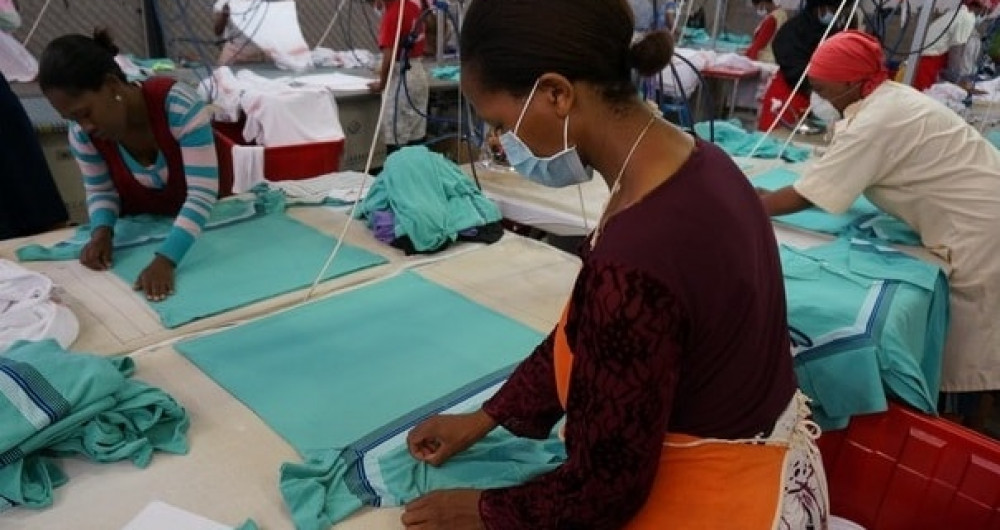MASERU
An annual World Bank study has revealed that Lesotho should have more targeted reforms to achieve gender equality and empower women to fully participate in the economy.
The Women, Business and the Law 2021 study analyses the laws and regulations affecting women’s economic activities in 190 countries.
The study is based on each country’s score on eight indicators structured around women’s interactions with the law as they move through their careers.
The indicators are Mobility, Workplace, Pay, Marriage, Parenthood, Entrepreneurship, Assets and Pension.
The overall score is calculated by taking the average of each indicator, with 100 being the highest possible score. With an index score of 78.1 this year, Lesotho is above the 71 average across Sub-Saharan Africa.
Yet despite being average among its regional peers, the scores on some indicators show that Lesotho still has to do more to achieve gender equality.
Of particular concern to the policy and lawmakers should be Lesotho’s 20 score on the parenthood indicator which examines laws affecting women’s work during and after pregnancy.
The indicator assesses whether a paid leave of at least 14 weeks is available to mothers and if the government administers 100 percent of maternity leave benefits.
It also looks at the availability of leave for fathers, laws prohibiting dismissal of pregnant workers and access to parental leave.
The poor score shows that Lesotho has to do more to protect the rights of women to paid leave during pregnancy and time-off for other parental duties.
The workplace indicator looks at laws affecting women’s decisions to be employed, including their legal capacity and ability to work, as well as protections against discrimination and sexual harassment on the job.
Here Lesotho scores 75, which is above the regional average but still points to a need for further reforms if women are to fully participate in the labour market and have their workplace rights adequately protected.
The country has a similar score (75) on the pay and entrepreneurship indicators.
The pay indicator analyses laws affecting occupational segregation and the gender wage gap.
The Entrepreneurship indicator measures constraints on women starting and running businesses.
Here too Lesotho is better than its peers but still has to do more to bring women at par with men.
Lesotho scores 80 on the Marriage indicator, which measures legal constraints related to marriage and divorce. Legal discrimination against women, including limits on their ability to be head of household, affect their participation in the labour market.
“To improve on the Parenthood Indicator, Lesotho may wish to consider making paid leave of at least 14 weeks available to mothers, making the government administer 100% of maternity leave benefits, making paid leave available to fathers, and making paid parental leave available,” the report says.
Lesotho is however doing exceptionally well on Mobility, Assets and Pension indicators where it has perfect scores (100). The Mobility indicator measures constraints on a woman’s agency and freedom of movement, both of which are likely to influence her decision to enter the labour force and engage in entrepreneurial activity.
The Assets indicator studies gender differences in property and inheritance laws.
“Improving property and inheritance rights is positively associated with female earnings and employment as well as women’s access to housing and land,” the report explains.
The Pension indicator assesses laws affecting the size of a woman’s pension.
The report says early retirement can widen the potential gender gap in pension levels and increase women's risk of poverty in old age.
The report’s findings are particularly important for policy and law makers across the world in the wake of the Covid-19 pandemic which could reserve the gains some countries have made towards achieving gender equality.
“Women need to be fully included in economies in order to achieve better development outcomes,” said David Malpass, World Bank Group President.
“Despite progress in many countries, there have been troubling reversals in a few, including restricting women’s travel without the permission of a male guardian.”
“This pandemic has exacerbated existing inequalities that disadvantage girls and women, including barriers to attend school and maintain jobs. Women are also facing a rise in domestic violence and health and safety challenges.”
“Women should have the same access to finance and the same rights to inheritance as men and must be at the centre of our efforts toward an inclusive and resilient recovery from the COVID-19 pandemic.
Mari Elka Pangestu, the World Bank’s Managing Director for Development Policy and Partnerships, says the unprecedented challenges of the COVID-19 pandemic have exposed and deepened global inequality. “For many women around the world, this could mean not only economic insecurity, but also threats to their health and safety,” Pangestu says.
“In times like these, a legal environment that encourages women’s economic inclusion can make them less vulnerable in the face of a crisis. Yet in difficult moments many women start at a disadvantage.”
Pangestu however says despite the effects of the pandemic many countries still prioritised gender equality.
“Every region improved its average score, with economies in the Middle East and North Africa seeing the greatest increase.” She notes that globally there have been changes that eliminated job restrictions or aimed at reducing the gender wage gap.
“Other improvements were good-practice legislation related to marriage and parenthood or to removing constraints to women’s entrepreneurship.”
But Pangestu says many laws continue to inhibit women’s ability to enter the workforce or start a business. “On average, women have just three-quarters of the rights of men. New measures may also be necessary to safeguard their economic opportunities during this time of crisis.”
Pic - sosopoetry.blogspot

